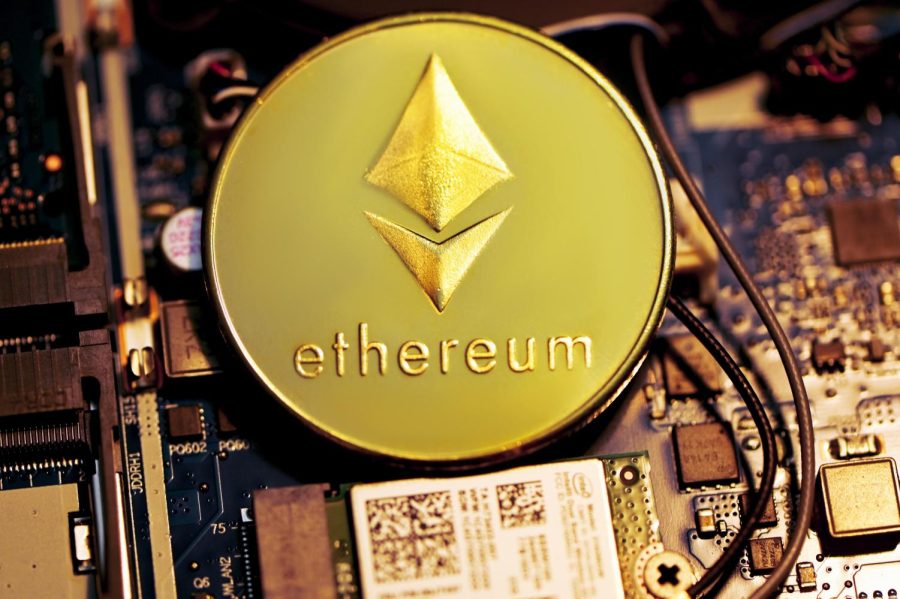Crypto Explained: Ethereum
Ethereum (ETH) is the second-largest cryptocurrency in the world. Sitting on almost $500 billion at its peak, it has grown nearly 785% in 2021 and is identified as the most trusted cryptocurrency in the world, other than Bitcoin. Even though Ethereum’s main purpose is to replace Bitcoin, Ethereum has established itself in the market by supporting smaller cryptocurrencies that they are growing.
Recently, Ethereum broke its all-time record and peaked at $4891 on November 10th, 2021. This crypto is already one of the best performing cryptos this year and one of the largest in valuation. Ethereum is outperforming competitors in its high ranking in comparison to Bitcoin, indicating that Ethereum is strong even despite not being as well known as Bitcoin.
One major advantage to Ethereum is its usability, proving to be a serious benefit for investors, compared to Bitcoin. According to Nasdaq, “Ethereum is more versatile than Bitcoin… Not only does it have a native token, Ether, but the Ethereum blockchain also serves as a platform for smart contracts (intended to automatically execute, control or document legally relevant events and actions) and decentralized applications (works on more than one server).” Ethereum is a better investment than Bitcoin because it is more beneficial and supports smaller cryptocurrencies on its network like Bancor (BNT), TenX (PAY), and Civic (CVC).
While other smaller and newer coins are growing exceptionally fast, they are incredibly volatile in comparison to larger cryptos like Bitcoin and Ethereum. However, it would be logical to invest in Ethereum as it has more uses and room to grow, compared to Bitcoin. Ultimately, investing in Ethereum at the next big dip would be a remarkable strategy given the dominance and control that it has already exhibited in the market.
*Not a financial advisor. All investment strategies and investments involve risk of loss. Nothing contained in this article should be construed as investment advice. Any reference to an investment’s past or potential performance is not, and should not be construed as, a recommendation or as a guarantee of any specific outcome or profit. The opinions expressed in this article are the author’s own. Harriton Banner does not endorse nor support views, opinions or conclusions drawn in this article and are not responsible or liable for any content, accuracy or quality within the article or for any damage or loss to be caused by and in connection to it.*

Harrison is a senior and is excited for his fourth year at the Harriton Banner. In addition to the Banner, Harrison also runs the Business Journal for...



